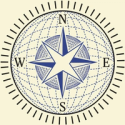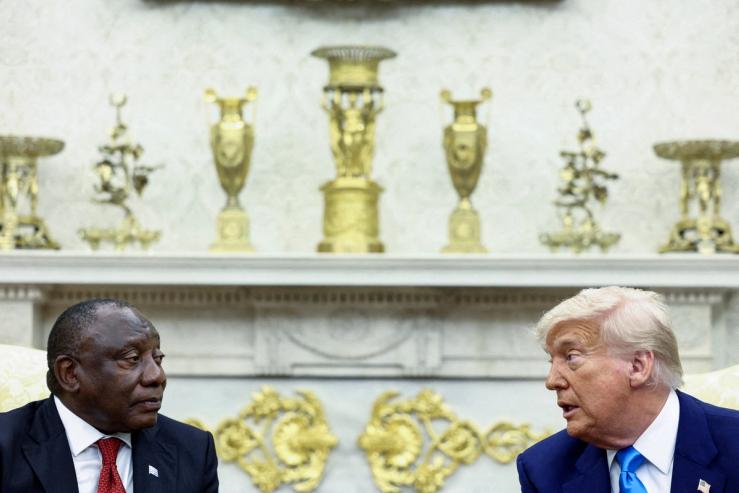Nearly a year into South Africa’s government of national unity, the country has acquired an unlikely catalyst for a shift in its economic and foreign policies: Donald Trump. The US president has been playing an oversized role on issues ranging from trade and Black ownership rules to Pretoria’s relations with Israel and Iran.
This pivot, shaped by domestic coalition constraints and geopolitical pressure, reflects a move away from ideological orthodoxy and toward economic pragmatism. At a recent post-budget event, South African Finance Minister Enoch Godongwana made an unusually candid remark: “If you disagree with the Americans, life becomes difficult in dealing with anybody. No one wants to touch you.” He was referring to US objections to South Africa’s past dealings with Tehran — but the broader message was unmistakable.
The moment of reckoning came last Wednesday, when South African President Cyril Ramaphosa met Trump in the Oval Office. The US leader blindsided him with allegations of a “white genocide” in South Africa, citing fringe right-wing sources. Ramaphosa gently but firmly pushed back, defending the country’s constitutional democracy — but the tone was bruising.
A close Ramaphosa ally later described the encounter as a difficult compromise: “Cyril can’t stand being spoken to like that — condescending and abusive — but sometimes you have to kiss a frog,” the source said. “Out of all this difficulty, there’s something positive. It’s helped our guys move faster. And the DA [Democratic Alliance] too,” referring to the second-biggest party in the coalition government.
In a bid to stabilize relations, away from the cameras, Pretoria proposed a major trade deal: importing around $1 billion of US liquefied natural gas annually in exchange for duty-free access for South African steel, aluminum, and vehicles. The tone was pragmatic, not defiant, according to reports.
That same pragmatism is now seeping into domestic policy. Tariff reviews are underway, and the protectionist industrial strategy associated with previous ANC administrations is quietly being reconsidered. “Trump’s tariff wars have made us uncomfortable — and more urgent in our step,” said an ANC insider.
The DA is taking its own shot. “We’re using our opportunity to push on doors,” said a senior DA figure, referring to how the party’s Solly Malatsi, minister of communications in the government, is relaxing the requirement of Black Empowerment Rule in the ICT space and is being hailed as an example of someone who pushes the envelope. His relations dovetail with moves that are also underway to ease regulations for Elon Musk’s Starlink to enter South Africa without need to give away or sell 30% to a Black-owned local entity — once politically unthinkable.
South Africa’s more cautious foreign posture is now also being extended to the Middle East. After leading the genocide case against Israel at the International Court of Justice, Pretoria has dialed back its tone. “We’ve decided to tone down the megaphone on Israel ... We don’t want to rattle the Americans too much,” said an ANC leader. “But we can’t withdraw the case.”
The national unity government, forged out of necessity, is proving to be a crucible for reform — driven less by grand vision than by external pressure. For now, posturing is out. Pragmatism is in.
The only question is whether it will last.


